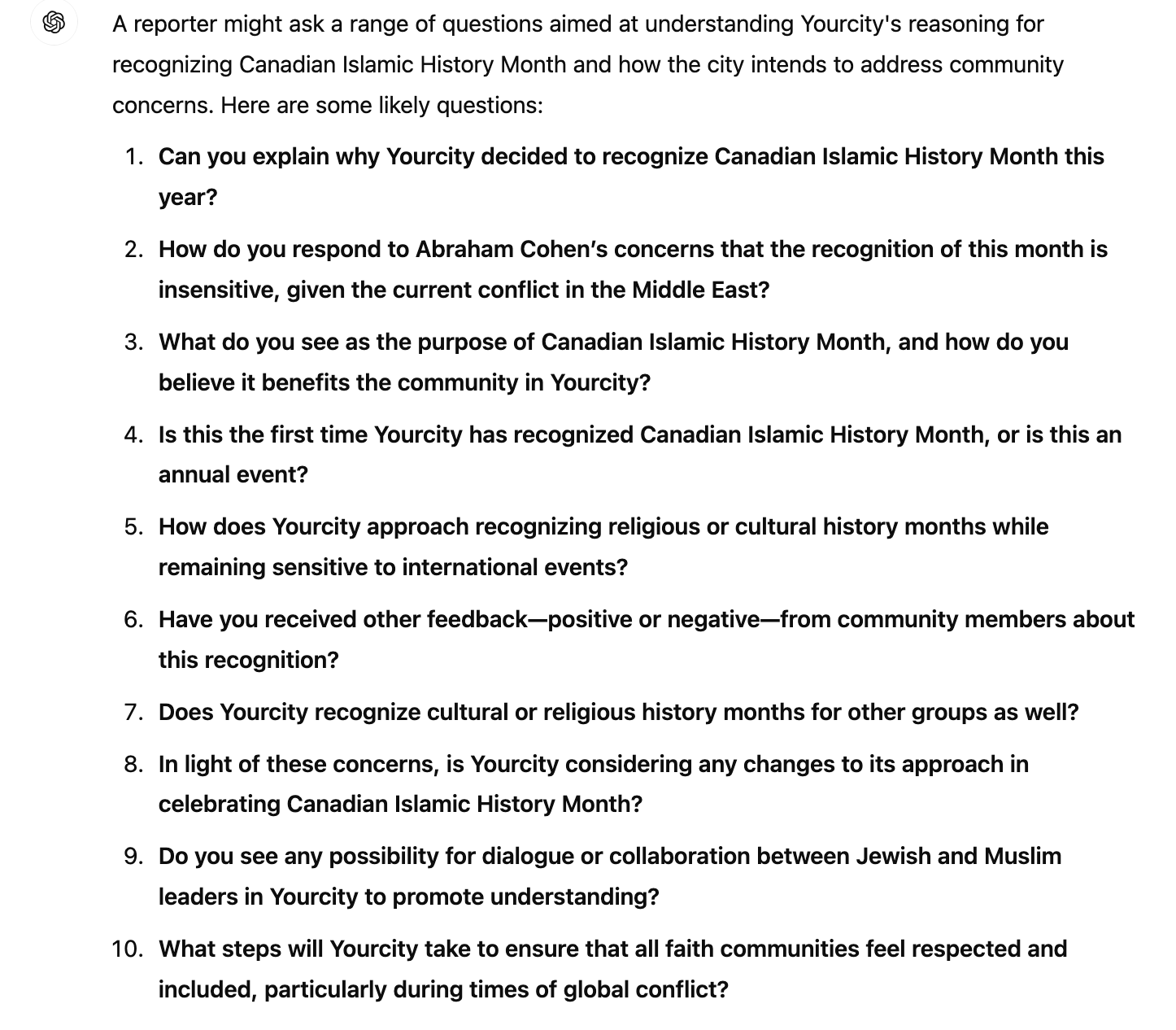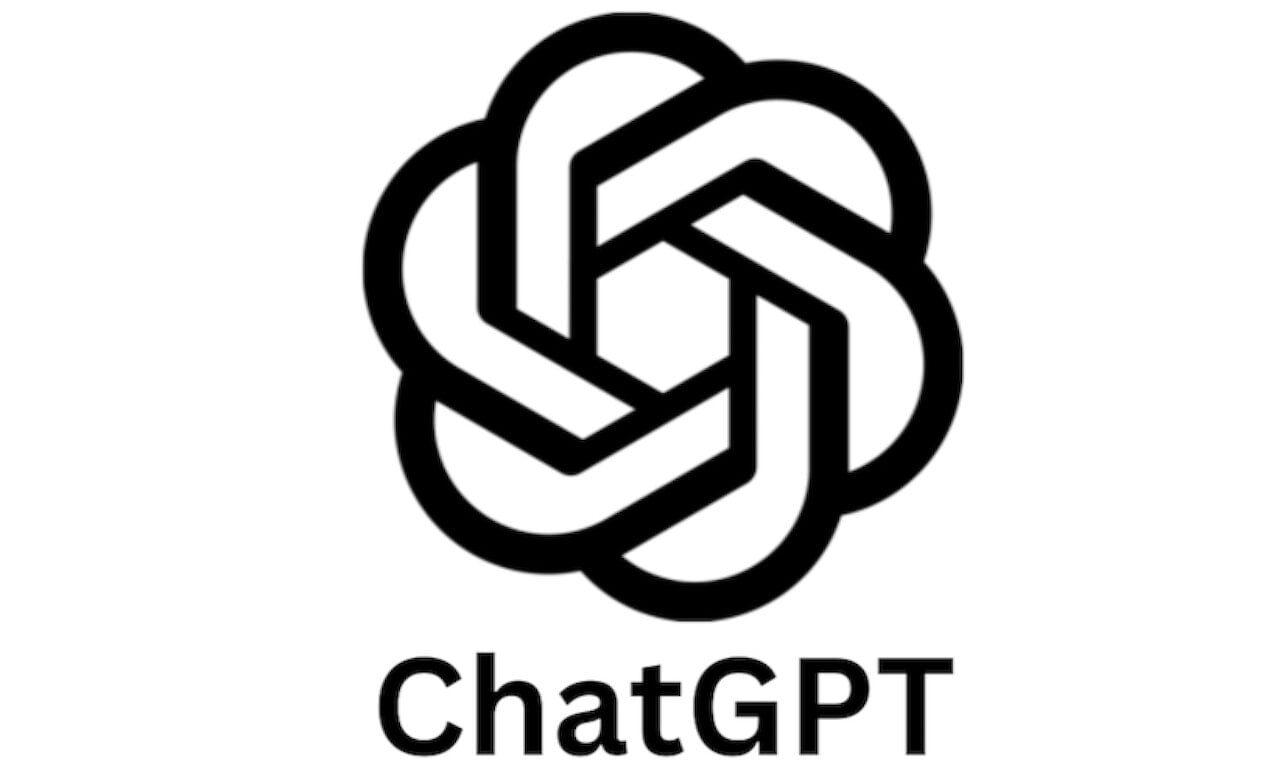AI Thinks Like a Reporter
Last week I was doing the first of two days of media training sessions for a municipality when the issue of AI came up.
The Communications person who hired me was talking to the group about the importance of anticipating questions reporters would ask and then she casually mentioned that today you can get a list of those questions by asking ChatGPT.
Whoa. Really? Sure enough you can. AI can give you a great head start before doing an interview of any kind. Whether it's a media interview, or a job interview, it's a great tool to use. Here's why.
Media Training Prep
A couple of weeks before each media training workshop I do, I meet with the client and talk about the media issues the client has faced in the past, is facing, or may face in the future. I also want to learn about their business and key people, what pain points they have and get them ready to face any foreseeable media situation they’ll encounter.
I then draft some news stories that could occur in the coming months. I usually do three or four, but sometimes I create a different story for each person who is taking the training.
It’s a lot of work, but quite frankly, unless most of the media training session is customized for each client, I’m missing the mark as a trainer. Sure, a general “Here’s how the media works” session is okay, but to really benefit the organization that’s paying me, most of the content needs to be about that org.
At each workshop, participants choose the story they’ll work on and then need to determine the questions a reporter will ask and how they would answer those questions. I’ve done different forms of this for over 16-years and it works well.
After each person figures out how the interview will go and practices their responses with me, I then do a formal interview on video, play it back and provide feedback.
With ChatGPT now available, some of what I do may be changing.
ChatGPT is the Bomb
I’ve heard about how powerful ChatGPT is and how it can be used, but hadn’t applied it to media training. I will now.
I took a story I recently used for media training and changed some of the details to make it more generic. Here’s the story I used:
The leader for a Canadian Jewish organization says it’s “disturbing” that Yourcity is recognizing November as Canadian Islamic History Month.
Abraham Cohen says, with all the trouble in the middle east, recognizing the Muslim religion this year is a “slap in the face” to Jewish people across the country. Cohen notes, countries like Iran and Iraq are Muslim countries and even Lebanon, currently at war with Israel, observes the Muslim religion. He wants Yourcity to stop its official recognition of the month.
A reporter from the news media in your community would like to talk to you to get your reaction to Cohen’s comments. What questions do your think the reporter would ask?
I fed the story into chatGPT and the following list of questions that a reporter would ask was produced within three seconds.

What terrific results! Excellent questions.
I may have started with the second question. I typically like to ask participants to provide their reaction to the comments somebody else has made. It makes them deal with the issue head on and I just find most interviews work better that way.
I also find AI tends to avoid asking confrontational questions that occur in real life. As an example, asking if someone is just making the comments for political reasons is a valid question that’s usually not included.
Regardless, it’s an excellent list. The reason why anticipating the questions you’ll get from a reporter is critically important is, once you know what you’ll be asked, you only need to come up with your answers. Any list of questions won’t cover every possibility, but nailing the questions brings down the stress level of the people I work with.
As I say in media training sessions, if you can figure out what you’ll be asked you’re halfway home. Now AI does that for you.
But Wait There's More
ChatGPT also gave me questions I could ask the spokesperson for the Jewish organization and questions I could ask local Jewish and Muslim spokespeople.
It identified the tone and sentiment of the story I created, the main arguments and possible themes and implications. It also provided a written statement Yourcity could use to give to the media, in case that was needed.
The key point to understand is, if you’re facing a media interview, or really any kind of interview, such as a job interview, AI can give you a terrific head start.
I’m sure when communications professionals saw ChatGPT and what it could do they were both excited about its prospects and fearful it could take away their jobs, or at least replace some of the things they now get paid to do.
It can’t replace media training, but it sure can help it.
**comment deleted**
Fascinating. Very well explained. Thank you.
Bruce C.


Commentary